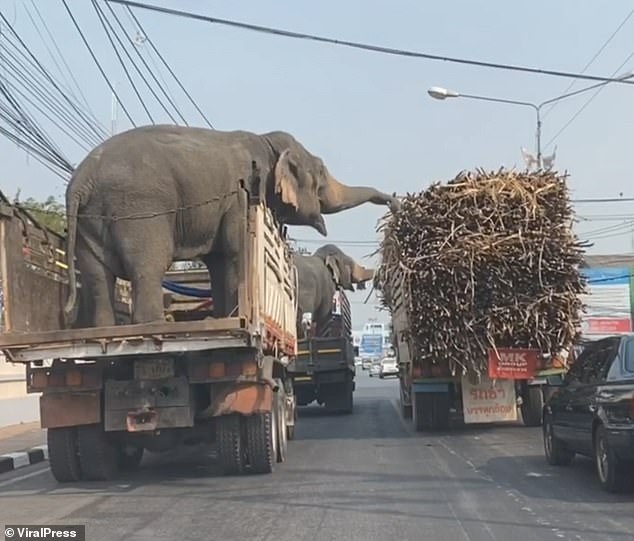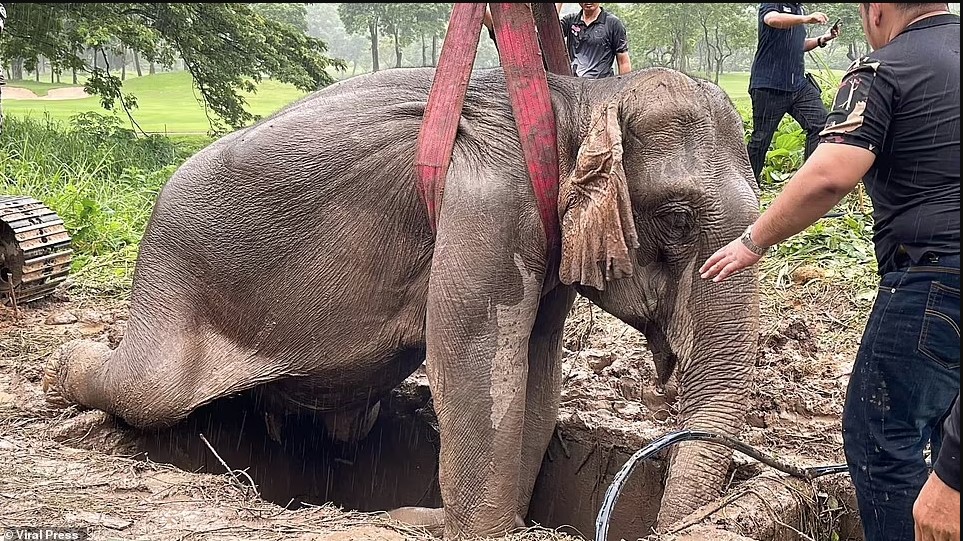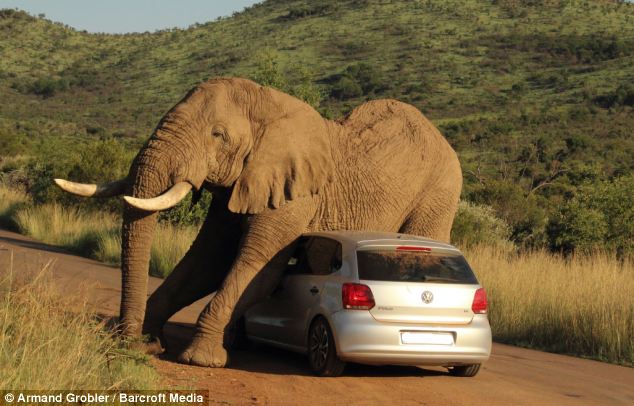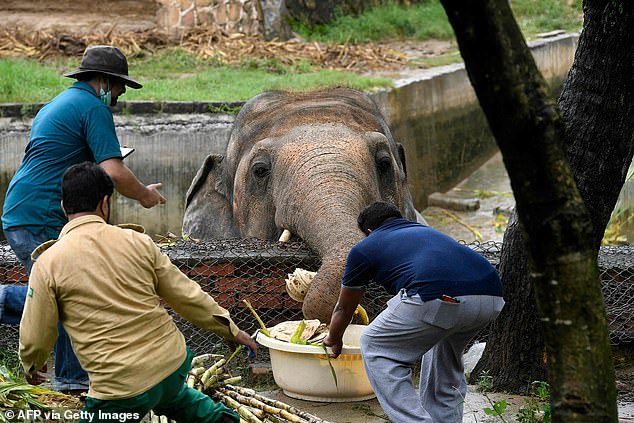Tom Mustill has always loved whales, but when he embarked on a whale watching tour while on a trip to California he never expected that he would narrowly avoid being crushed by one of the gigantic beasts
TOM Mustill thought he was going to die as a humpback whale the size of two buses jumped out of the water and came crashing down on him during a holiday boat trip.
Swept metres underwater by the tremendous force created by the beast, the 35-year-old Brit was thrown around in the water like a rag doll, and says he almost drowned.

Tom and his friend thought they were going to die when the whale breached over them
Tom, who had long been obsessed with the massive creatures, was visiting Monterey Bay in California.
The area is a tourist hotspot for whale watching, so it seemed like the perfect opportunity to try out a kayak tour.
But after a morning of paddling the ocean, it looked like disaster had struck when a fully-grown male whale jumped out of the water and came crashing down on him with its huge 30-tonne bulk.
Three years surviving the near-death encounter, Tom returned to California to find some answers about his miraculous escape from the creature in BBC2’s latest documentary, Humpback Whales: A Detective Story.

Tom has returned to California three years after the incident for a new BBC documentary
‘You can smell its fishy breath’
“I’ve always been really interested in whales since I was little so I wanted to go out watching on the kayak,” Tom tells Sun Online. “So we booked in for the tour and went out to sea. It was so calm and is normally very safe -and we saw dozens of whales.”
But what started off as a leisurely paddle on the Pacific ocean soon turned into a near-death experience that he would never forget – getting far closer to a whale than he ever thought was possible.
“This whale jumped out of the water from nowhere. It just felt enormous, impossibly big – it blocked out the sunlight as it came over us, water was dripping off its body and the grooves of its throat,” he recalls.
“And whales have really distinctive, fishy breath that you can smell in the air when you get close to them. It’s not a nice smell and obviously really startling.”

Humpback whales can grow to the size of two buses
But Tom says he didn’t “have time to be scared.”
“I think I instinctively starting cowering away from it – after that, everything is blank in my mind until I was under water,” he adds.
Tom and his friend Charlotte, who was at the front of the kayak, were dragged underwater by the force of the whale as it dived into the depths – and Tom was sure he was dead as his body was thrown around like a doll.
“The next thing I knew there was this tremendous force pulling my body,” he recalls. “It was so strong I’d never felt force like that. I thought I was dead or at least fatally injured, that my arms and legs were broken.
“But after swimming to the surface and realising I had miraculously survived, I was sure that Charlotte was dead. It was a fact to me for those few seconds – it was impossible I had survived, let alone both of us.”
As Charlotte appeared from the water, a huge smile on her face and shaking from the adrenaline, it was clear the pair had escaped the beast with their lives, most of the damage taken by their heavily dented kayak.

Tom and Charlotte miraculously emerged unhurt
‘Its body was the equivalent of 14 elephants’
“The whale struck our boat with its pectoral fin – similar to an arm – which are very hard and can be up to five metres long,” Tom says.
“If it’s body had landed on us, the equivalent of 14 elephants, we could have died.”
Whales are thought to come out of the water to communicate with others, and colliding with boats and kayaks is an accidental consequence of this.
They’ve been known to accidentally injure people by breaching onto boats, and in 2015 a Canadian woman was killed when a grey whale landed on tourists out at sea.

Whale watching tours are normally very safe, but in some cases people can be injured or even killed
But the gentle giants, which feed on small fish and are normally non-aggressive, have never before breached onto a kayaker in Monterey Bay – and it hasn’t happened since.
“We re-analysed the footage and you can see the whale sticking its eyes out and taking a look at us while he’s in the air,” Tom adds. “I think that’s why we didn’t die – because it saw us and swerved to not hit us.
“This isn’t necessarily because it cared about us and didn’t want to hurt us – but they have big brains, bigger than humans, so they are very intelligent and so may have known to move out the way.”

Whales are thought to breach to communicate with each other

Tom and Charlotte were amazingly unhurt after the incident with the breaching whale
The reason why Tom’s whale jumped when it did remains a partial mystery, but he has found some answers while researching for the documentary.
He says: “The conditions that day made it likely something like this would happen. The whales were close to the shore feeding on a big school of fish, so they would have been in a very excited and jovial state.
“Add the many boats and kayaks that were out on the water for whale watching that day, and more people out on kayaks, it made it very likely it would happen, even if it was normally safe.”
‘This hasn’t put me off whale-watching: I’ll do it again’
Although Tom, who once worked on a whale watching boat in the Canary Islands, doesn’t believe in fate, he believes it “made sense” it happened to him due to his love of the beasts.
“In some ways I feel like the universe chose me so I want to turn my experience into something positive for the animals – that’s why I made this film.”

The gentle giants rarely attack humans and usually feast on fish

Wildlife filmmaker Tom says he hasn’t been put off whale watching
Tom wants to help whales in every way that he can, and in his film he highlights a plight for boat speed limits in areas of high whale concentration, and the use of Happy Whale, a database which tracks whales all over the world to help educate the public on their habits.
“All of this hasn’t put me off whale watching, if anything it’s made me more interested and I’ve started to enjoy them more. There’s something addictive about seeing them – it puts our small lives into perspective.”
For Tom, who admits he’s found out information about his whale while working on the documentary, there’s only one subject left to interview: the whale itself.








